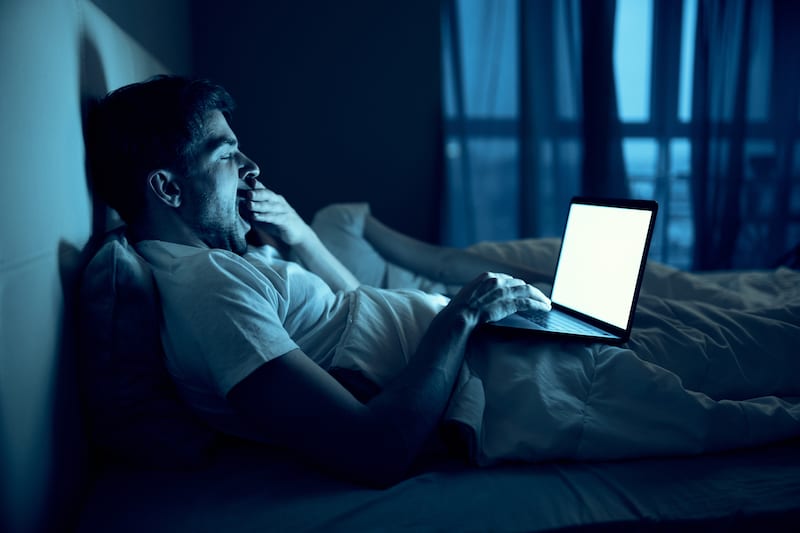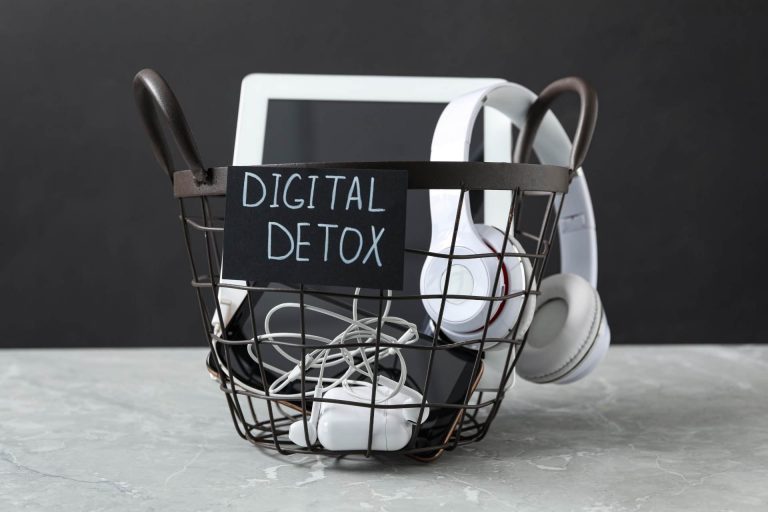A gadget-free break sounds amazing on paper, like the plot of a feel-good movie where someone disconnects and magically finds their purpose. But in reality, it’s a little messier. You might stop scrolling and still feel like your brain is fried.
Worse, you could discover you’ve just swapped one screen for another—hello, binge-watching that show everyone keeps talking about.
Real change takes effort and clarity. If you’re not careful, your so-called “detox” could be as useless as a rom-com without chemistry. Let’s dive into what actually works and how to make your time off truly count.
Key Points:
- A break from screens doesn’t always mean less stress.
- Know the difference between unplugging and actually resetting.
- Tailor your tech-free time to what you really need.
- Signs your break isn’t doing the trick and what to adjust.
Why Your Break Isn’t Magic
Imagine being in The Matrix, thinking you’ve escaped, only to discover you’re still stuck. That’s how some failed breaks feel. People ditch their gadgets, expecting life to suddenly improve, only to spiral back into the same bad habits within days.
Many believe unplugging is the entire solution. The truth? It’s not. Simply avoiding screens doesn’t fix what made you crave them in the first place. For example, if boredom drove you to scroll, it’ll still exist without screens unless you fill that gap.
If you’re looking for practical tips on lifestyle and managing habits, ItsOnSiteTV covers topics like news and entertainment to help keep your approach realistic and engaging.
Is the Problem You or the Plan?

Not all tech-free plans are effective. Some sound great on paper but fail in practice. Here are the clearest signs something isn’t adding up:
You Still Feel Tired
A successful break leaves you recharged. If you still feel mentally foggy or emotionally drained, something is missing.
Stress About Being Offline
Does the thought of missing out on notifications or not responding quickly make you anxious? This points to a deeper issue of dependence. A healthy balance makes you feel free, not panicked.
You’re Sneaking Screen Time
Do you find yourself “just checking” emails or texts during your supposed break? If so, you’re not fully committing.
Your Goals Feel Vague
Having no clear reason for a gadget-free period leads to half-hearted results. Decide what you want to achieve before starting.
How to Build a Tech-Free Routine That Works

Building a balanced, screen-free routine is like training for a marathon—you can’t expect success without preparation. Start small and be intentional about how you use your time.
Step 1: Define Your Purpose
The first step is understanding why you want to step away. Are you looking for better focus? More family time? Improved mental health? Having a clear goal makes it easier to measure your success.
Step 2: Replace, Don’t Just Remove
The time you gain from putting gadgets away needs to be filled with something meaningful. Otherwise, boredom will push you back toward old habits. Consider:
- Reading actual books—because no one needs a Kindle to enjoy a paperback.
- Learning a new skill or revisiting a forgotten hobby.
- Spending time outside. Even a walk around the block can feel refreshing.
- Reconnecting with people. A phone call or face-to-face chat beats endless texts any day.
Step 3: Track Your Progress
Log your experiences during the break. Write down how you feel each day, what activities you’ve enjoyed, and where challenges arise. This helps you tweak your plan for better results.
Are You Falling for Fake Fixes?

Some so-called solutions are nothing more than a mirage. Watching Netflix instead of Instagram isn’t progress. It’s swapping one dependency for another.
Signs You’re Stuck in a Loop:
- Switching devices ─ Moving from phone to tablet to laptop isn’t reducing screen time—it’s just shifting it around.
- Rationalizing your behavior ─ Convincing yourself that “just five minutes” won’t hurt means you’re not serious.
- Using breaks as excuses ─ Spending offline time napping or procrastinating won’t give you the mental reset you’re looking for.
To truly break the loop, stay intentional. Be aware of how often you reach for gadgets, even during downtime.
Benefits Only Real Breaks Deliver
When you commit to meaningful habits, the results are worth it. Remember Eat Pray Love? That moment of clarity where everything makes sense? A successful screen-free routine feels like that—but without the plane ticket to Bali.
1. Better Sleep
Screens, especially before bed, disrupt your natural sleep cycle. Cutting back can improve how rested you feel in the morning.
2. Deeper Connections
When you’re not distracted by constant notifications, your interactions become more genuine. You listen better, laugh more, and notice details you’d normally miss.
3. Improved Focus
Without the constant ping of alerts, your brain gets the chance to concentrate on one thing at a time. This boosts creativity and problem-solving skills.
4. Reduced Stress
Living in a constant state of multitasking takes a toll. A break offers calm and clarity, helping you feel more in control.
Quick Tips for a Balanced Approach

Not ready for a full break? That’s okay. Small, practical steps can create a healthier balance without cutting screens entirely.
- Set specific times for app use.
- Turn on “Do Not Disturb” during meals or social events.
- Avoid screens 30 minutes before bed to improve sleep quality.
Starting small helps you build better habits gradually, avoiding being overwhelmed.
When Your Detox Feels Pointless
If unplugging doesn’t bring the relief you hoped for, dig deeper into your habits. Ask yourself:
- Am I replacing tech with quality activities?
Skipping gadgets but spending the time doing nothing productive won’t help.
- Have I addressed my triggers?
Figure out why you’re drawn to screens in the first place. Is it boredom, stress, or the need for validation?
- Do I have a clear goal?
Without knowing what you want to achieve, even the best plan will fail.
Final Thoughts
Escaping the constant pull of screens takes more than putting your phone down. It’s about creating a life where tech becomes a tool, not a crutch. Start with small adjustments, be honest about your habits, and keep refining your approach until you see real results.
So, what’s your next step? Try a gadget-free evening or swap scrolling for something you love. And if it doesn’t work right away, don’t give up. Your mental peace is worth the effort!

